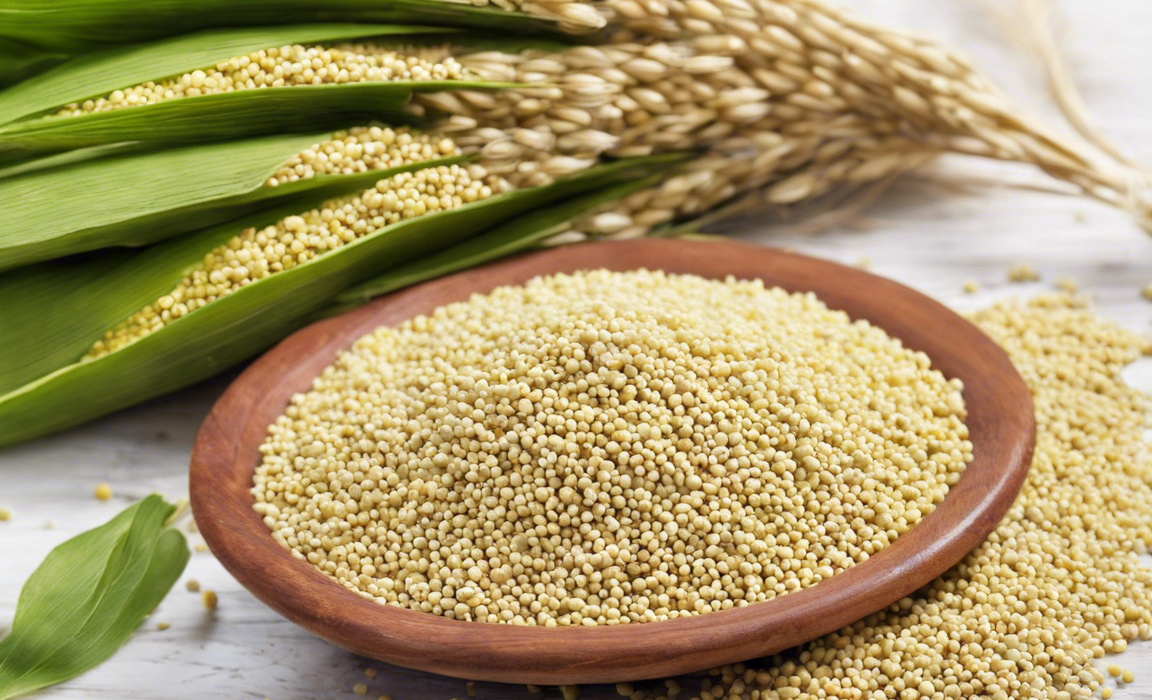With the ever-evolving landscape of the health and wellness industry, one term that has gained significant traction in recent years is millets. Traditionally considered as staple grains in many parts of the world, millets are now being hailed as a superfood with a plethora of health benefits. But are millets truly a nutritional powerhouse, or is their current popularity just another passing diet fad? Let’s delve deeper into the world of millets to separate fact from fiction.
What are Millets?
Millets are a group of small-seeded grasses that have been cultivated for thousands of years and are a significant food source in many parts of Asia and Africa. They are known for their resilience and ability to grow in harsh environments, making them a sustainable crop option. Common types of millets include pearl millet, foxtail millet, finger millet, sorghum, and proso millet.
Nutritional Benefits of Millets
1. Rich in Nutrients
Millets are packed with essential nutrients, making them a valuable addition to a balanced diet. They are a good source of protein, fiber, vitamins (B-complex vitamins), minerals (iron, calcium, magnesium), and antioxidants.
2. Gluten-Free
For individuals with celiac disease or gluten intolerance, millets serve as an excellent gluten-free alternative to wheat and other grains.
3. Low Glycemic Index
Millets have a low glycemic index, which means they do not cause spikes in blood sugar levels. This makes them an ideal choice for individuals with diabetes or those looking to manage their blood sugar levels.
4. Promotes Digestive Health
The fiber content in millets supports healthy digestion and can aid in preventing constipation. Additionally, the presence of prebiotics in millets promotes the growth of beneficial gut bacteria.
5. Heart Health
Millets are heart-friendly as they contain phytonutrients like lignans that can lower the risk of cardiovascular diseases. The magnesium present in millets also plays a crucial role in maintaining heart health.
Incorporating Millets Into Your Diet
1. Millet Porridge
Replace your regular breakfast cereal with a nutritious millet porridge for a hearty and healthy start to your day.
2. Millet Salad
Add cooked millets to your salads for an extra nutrient boost and a crunchy texture.
3. Millet Pilaf
Swap rice with millets in your favorite pilaf recipe for a fiber-rich and flavorful dish.
4. Millet Baking
Experiment with baking using millet flour for gluten-free and nutrient-dense treats like cookies and muffins.
Millets: Superfood or Diet Fad?
While the nutritional benefits of millets are undeniable, it is essential to approach their consumption with a balanced perspective. Millets can indeed be a valuable addition to a healthy diet, especially for those looking to diversify their grain intake or manage specific health conditions. However, it is crucial to remember that variety is key when it comes to nutrition, and no single food can provide all the essential nutrients our bodies need.
In conclusion, millets can be rightfully termed as a superfood owing to their nutrient profile and health-promoting properties. However, like any other food trend, it is essential to incorporate them into your diet mindfully and in moderation.
Frequently Asked Questions (FAQs) About Millets
1. Are millets suitable for individuals following a ketogenic diet?
Millets are not typically recommended for individuals following a ketogenic diet due to their carbohydrate content. However, they can be consumed in smaller quantities based on individual preferences.
2. Can millets help with weight loss?
Millets can be a supportive component of a weight loss diet due to their high fiber content that can promote satiety and aid digestion. However, portion control and overall caloric intake remain crucial for weight loss.
3. Are there any precautions to consider when consuming millets?
Some individuals may experience digestive discomfort when first introducing millets into their diet due to their fiber content. Gradually increasing consumption and ensuring an adequate intake of water can help mitigate this issue.
4. Can millets be used as a replacement for rice in all dishes?
While millets can be used as a healthy substitute for rice in many dishes, the cooking process and texture may vary. It is recommended to experiment with different millet varieties to find the best fit for specific recipes.
5. Are millets suitable for individuals with nut allergies?
Millets are generally considered nut-free and are safe for individuals with nut allergies to consume. However, cross-contamination during processing or packaging may be a concern for some individuals, so it is essential to check for allergen information on product labels.
In conclusion, millets offer a nutrient-rich and versatile addition to your diet, whether you are looking to boost your overall health or explore new culinary possibilities. Remember to enjoy a variety of foods for optimal nutrition and well-being.


